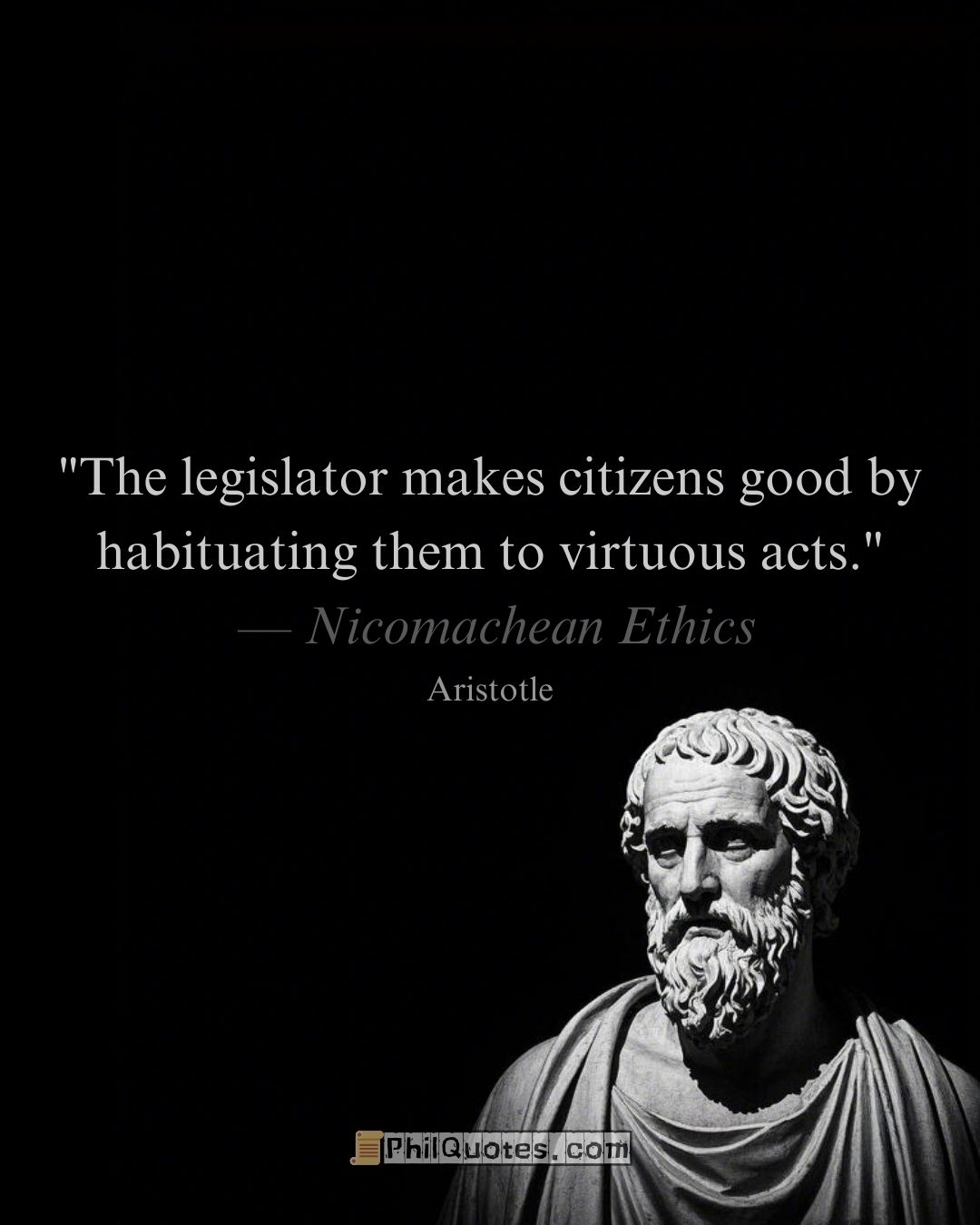
“The legislator makes citizens good by habituating them to virtuous acts.”
— Aristotle, Nicomachean Ethics, Book II, Chapter 1
(Translated by W.D. Ross)
🔍 Core Idea
Social systems are humanity’s habit-tracker apps — just as school schedules condition study routines, ethical policies (like recycling laws) code virtue into muscle memory. Imagine Duolingo for morality: daily “good deed streaks” become second nature.
❗ Why This Matters Today
🏫 School Honor Codes
Weak: Vague “be honest” posters → cheating persists 🚫
Strong: Mandatory peer-review workshops → normalize integrity habits ✅
📱 Social Media Norms
Chaos: No content guidelines → hate speech spreads 🚫
Progress: “Fact-check before sharing” prompts → build digital citizenship ✅
🌳 Community Green Policies
Lax: Optional recycling → contamination 🚫
Strategic: Free compost bins + pickup schedules → drive eco-routine adoption ✅
🚀 Action Steps
- Policy Hackathons
Draft 3 micro-laws for your community:
“1. Library quiet hours → 2. Park cleanup days → 3. Study buddy mandates” - 21-Day Civic Habit Challenge
- Week 1: Launch “10-min neighborhood patrols”
- Week 2: Institute “phone-free family dinners”
- Peer Legislation Squads
Form 5-person councils → monthly audit local norms → propose habit-boosting amendments